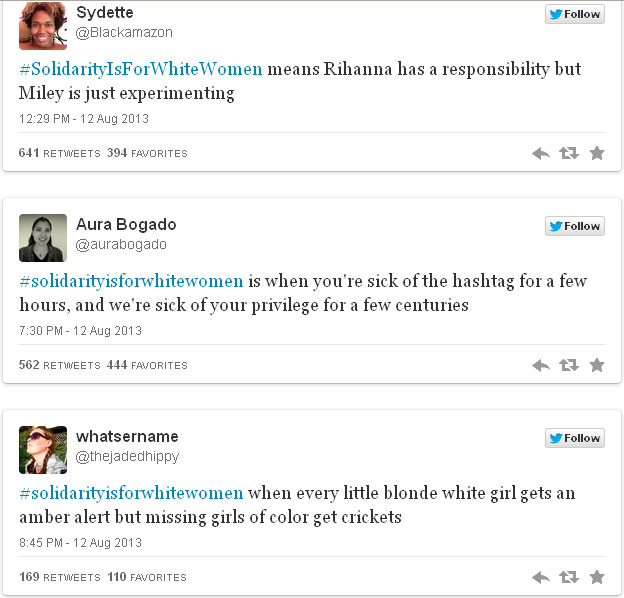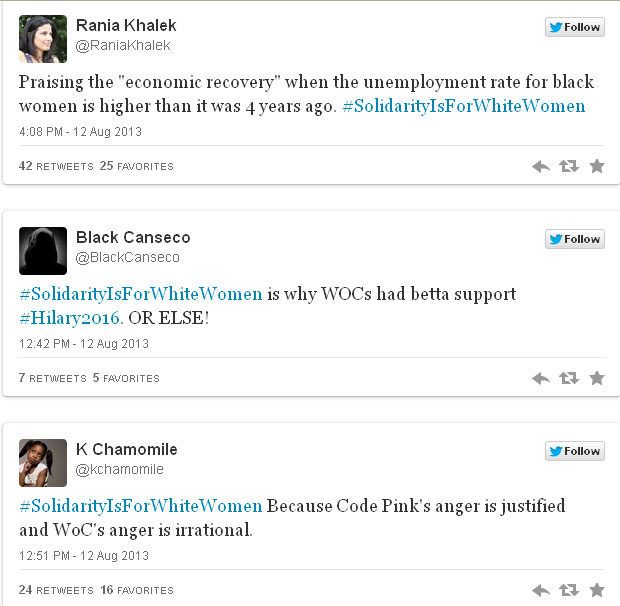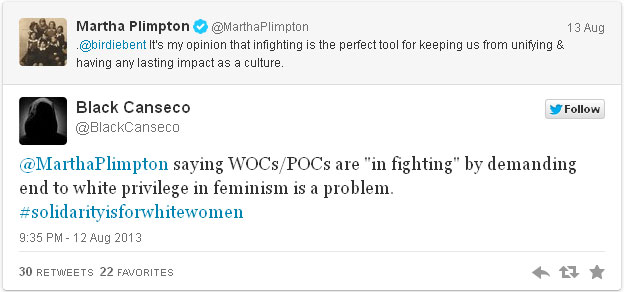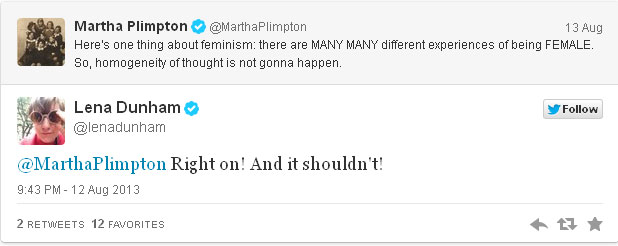There’s a place in feminism’s underbelly where some things aren’t often brought to light. Among the calls for equality and the staunch stance that what feminism really does is work to level the playing field for everyone, what many of us realize is there is a double standard when it comes to taking up the mantle of solidarity. Hence the birth of #SolidarityIsForWhiteWomen.
Many WOC (Women of Color) have felt left out of the feminist movement upon seeing the paradigm extend only to those who would conceivably benefit most, or who would be the perceived better poster children for the cause — and for those who have the time, opportunity, and privilege to partake in rallying for equality– while WOC are expected to bear their burdens alone. For some the notion of “feminism” as many have sought to propagate it, only seems relevant to women outside of the minority, as if WOC’s concerns are lesser than, are brought upon themselves, or are so far from being relatable that they are deigned less important. Often what WOC suffer is responded to as a separate issue than those things that make the mark of “true feminism,” which is a strange misnomer since women of all races want not only equal treatment, but not to be valued less than their counterparts with regard to race, economic background, political leaning, or country of origin.
For many WOC it is frustrating to witness the contradictions when they baldly appear, but to further have them overlooked when brought to light, and then belittled by being called divisive when shared, adds insult to injury. This often occurs when the concern is raised that a case is made for one set of women and either turning a blind eye or judging more critically another has become commonplace in our society. And that’s what the hashtag is meant to bring to the forefront — that there is such a thing as race-based feminism and that if feminism is really about protecting and demanding equality for all — then it should include the plights and concerns of WOC.
Interestingly enough, feminism billboard website Jezebel.com is one such entity that was taken to task for their convoluted handling of this situation — and other instances where a void has existed with regard to women of color.
The catalyst of the hashtag launched by writer Mikki Kendall came out of contentious exchanges feminist WOC experienced at the hands of self-proclaimed, “Bad boy male feminist,” Hugo Schwyzer. Schwyzer admittedly conned his way to being at the forefront of the modern feminist movement by claiming credentials he did not have, and by putting on a persona that is not true. He’s confessed that he used “sex and charm and whiteness” to work his brand of magic to land both teaching positions and on the pages of prominent blogs.
In reality he seems to be more of plant for ill-will than anything else. His past includes a murder attempt on the life of a former girlfriend, something we’re sure is against the tenets of feminism. He also went so far as to stalk and target women of color who criticized and disagreed with him. Yet mainstream feminist outlets like Jezebel worked with him over the years and largely remained mum with regard to his “revelations” about his false past and the news that he frequently targeted WOC. In general, Jezebel remained mostly mum on the total topic, only conceding to discuss it lightly in the dregs of the evening yesterday with a light nod toward the fraud that is Hugo Schwyzer, while blandly apologizing for not acknowledging the origin of the #SolidarityIsForWhiteWomen conversation and its author.
And other prominent feminists simply couldn’t get behind the tag.
Actress and feminist, Martha Plimpton had this to say:
She added this sentiment which was championed by Girls creator, writer, and star Lena Dunham, who has come under fire for being called the voice of a generation — whose hit show has included few WOC.
Many took to Twitter using the hashtag to voice not only their own realizations when viewing #SolidarityIsForWhiteWomen but to express that while uncomfortable to hear — it was a teachable moment — one that was never thought about in such stark terms before, and how there should be a change in the thinking that surrounds “white feminism” and the inherent luxuries it implies therein.
At the very least what Kendall succeeded in was opening the door for conversation; some of it contentious, some of it riotous, some of it flat out wrong, but much of it ripe for the mining of thought and commentary. And that is a measurable feat for Twitter, a place where every character counts.
You can read Kendall’s own thoughts on the Twitter collective here and you can read the hashtag page here.
Image Source: Flickr






